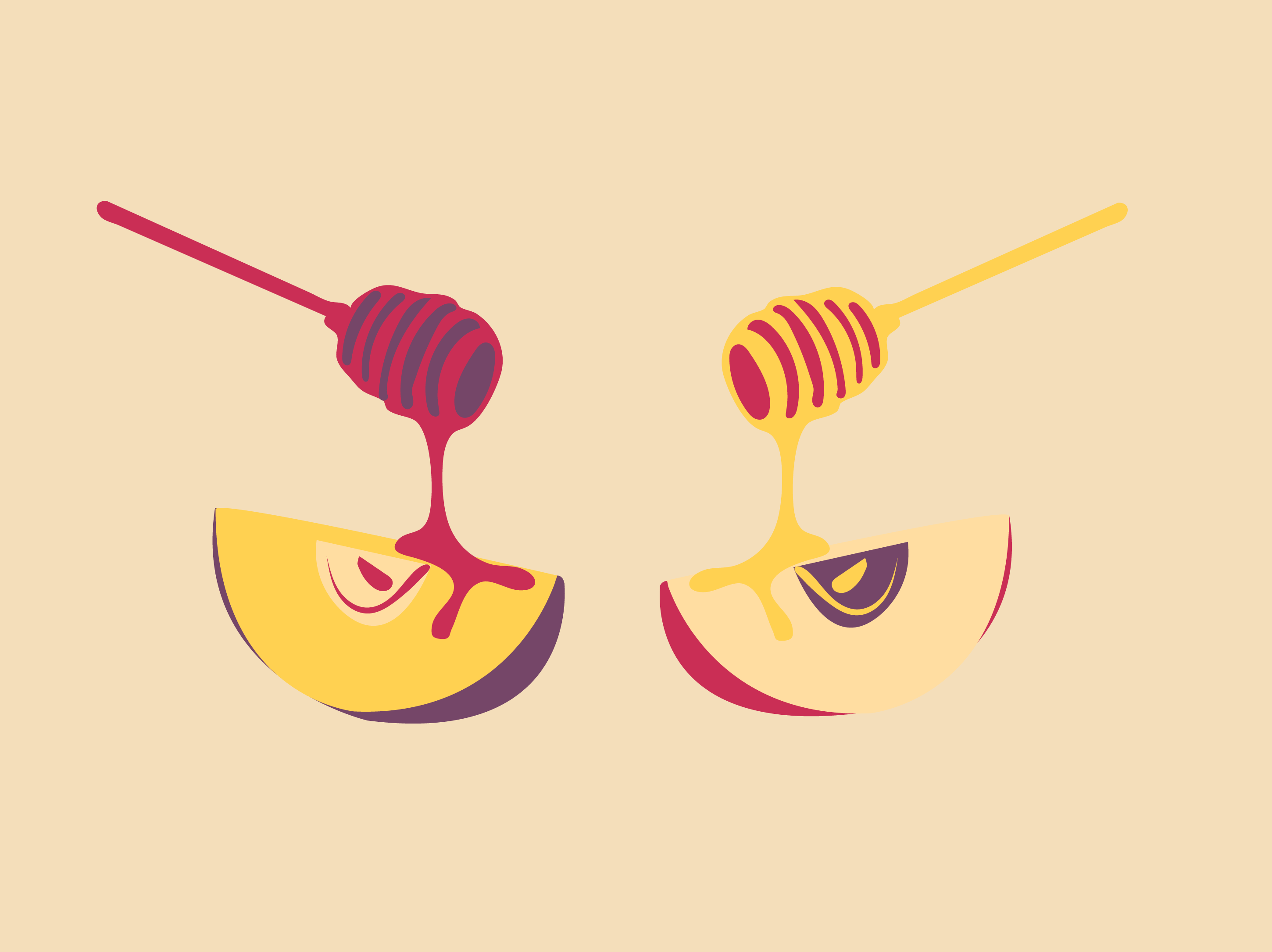Illustration by Nitya Kumar
For most New School students, it’s just two days off. For Jewish students, they’re the holiest days of the year — and maybe the loneliest, because it’s harder to find people to spend them with.
Rosh Hashanah and Yom Kippur make up the High Holidays, marking the beginning of the Jewish new year. The holidays fall on Monday, Sept. 30 and Wednesday, Oct. 9, respectively. New School students get these holidays off.
The High Holidays are all about reflection, Talia Gnessin said, a staff member at the Bronfman Center for Jewish Student Life at NYU. “There’s a lot of room for us to reflect on our place in the world, what we’re giving, and also what we’re taking,” Gnessin said.
“It all starts off with Rosh Hashanah, which literally translates to the head of the year,” Gnessin said. “That’s when the Jewish calendar resets, so we reflect on good things. We talk about how we’re looking forward to starting the new year in a sweet way, and we eat apples and honey because those are sweet things and they resemble how we want to start off our year.”
Though they are both a part of the new year, Rosh Hashanah and Yom Kippur are very different in means of celebration and spirit. Yom Kippur is more somber, and typically warrants a full-day fast. “We can’t go into the sweet new year without taking the time to forgive and to apologize,” Gnessin said.
“We spend an entire day fasting and wearing our simplest clothes. We apologize, not only for ourselves and our own actions, but for the entire world, including people who can’t fast, can’t pray, or may not want to pray. It’s for the benefit of the entire human race,” Gnessin said.
“When we look at Jewish texts, it’s so easy to let it stay in the ancient language… the Torah says things like ‘we’ve stolen, we’ve robbed, we’ve cheated,’ and even if I haven’t literally robbed someone, there’s other ways to interpret that. Like maybe I’ve robbed someone of space by taking up too much of it myself and didn’t allow someone else to speak up,” Gnessin said.
The spirit of the High Holidays is a kind that is best felt with family and loved ones, which is where homesickness comes into play.
“It’s such a moment of gratitude and reflection that it can feel weird to not be around my sisters and parents,” said Hannah Washkowitz, a second-year drama major at the College of Performing Arts. “I’ve been lucky to find people here, Jewish and not, who make me feel just as grateful and full of love!”
“I felt homesick last year, but my mom is in town this year and that helps,” said Zoe Burger, a second-year psychology major at Lang.
Some students, however, don’t have the opportunity to be visited by family. These students are forced to find feelings of community and security elsewhere.
As an institution, the New School has very strong Jewish roots. The New School was a place of asylum for many Jewish refugees looking to flee Europe during the Holocaust, according to the New School for Social Research’s website.
The New School for Social Research started out as the University in Exile, founded in 1933. Alvin Johnson founded the University of Exile, granting Jewish refugees visas and career paths.
The Jewish community has a very strong presence at the New School, which might explain why we have these holidays off.
This is not the case for all New York schools, such as NYU and Columbia, who, according to their websites, remain in-session on Rosh Hashanah and Yom Kippur.
Below is a list of these resources for both Jewish students and non-Jewish students looking to learn about the High Holidays alike.
The New School’s Jewish Culture Club
This club provides New School students with a very tight-knit, culturally Jewish community. The Jewish Culture Club will meet on Monday, Oct. 7 from 6:30 – 9 p.m. and will break the fast together on Yom Kippur. More information on the club is available here. (Note: Lauren Hoffman, photo editor of this newspaper, is the president of the Jewish Culture Club.)
The Bronfman Center for Jewish Student Life
Though this is technically an NYU facilitated organization, it is open to all college students in downtown Manhattan. In addition to being a strong sense of support and community for many Jewish students at different schools in the area, they hold High Holiday services, dinners, and other activities. Read more about the Bronfman Center and what it offers here.
There are several synagogues that provide free High Holiday services as long as an RSVP is completed online in advance. These include, but are not limited to:
Congregation Beit Simchat Torah in Chelsea
Kolot Chayeinu in Park Slope
Union Temple in Prospect Heights
*Please check respective websites to see where services are being held.







